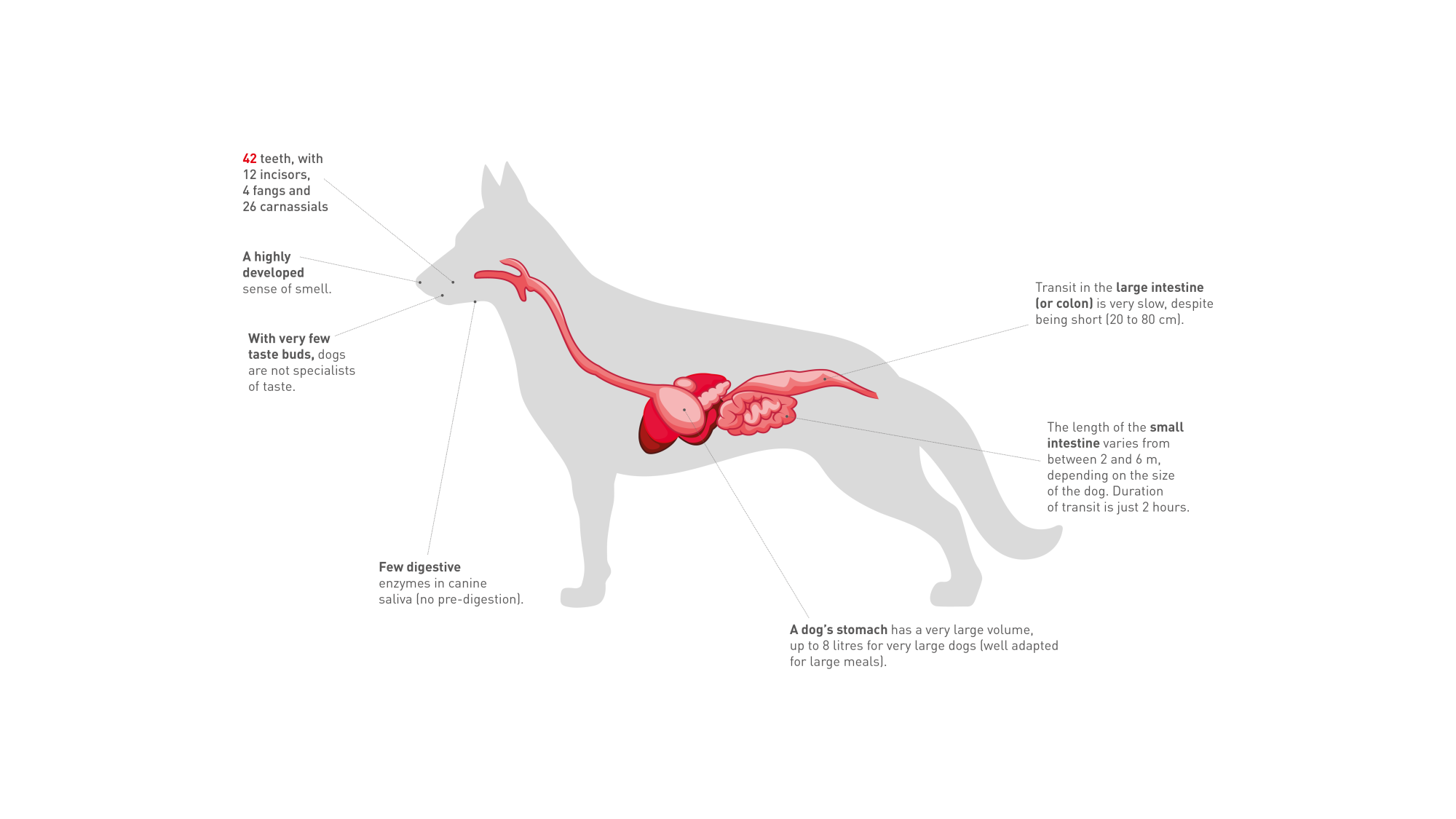How does your dog’s digestive system work?
Some dogs love all food while others are pickier, but it is the balance of nutrients in the diet that provides the benefits to their health. While aroma, taste and texture can make food more appealing to your dog’s palate, it is the digestive system that transforms food into the nutrients needed for the body to function properly.
Article

After your puppy swallows their food, it passes through the esophagus into the stomach. The food starts to break down as it passes into the small intestine and digestive enzymes are released. The small intestine is lined with millions of tiny protuberances called villi which provides a large surface area to allow the nutrients to be absorbed by the body. The large intestine is the final step in the digestive process, transporting waste back out of the dog’s body.
This process, which usually takes up to 9 hours, has one main goal: to turn food into the usable nutrients needed for the body to function. For this process to be as efficient as possible, the food needs to be highly digestible. Food with low digestibility can result in undigested material reaching the large intestine, where it is fermented by bacteria, contributing to gas and odours and altering the dog’s microflora, which can lead to digestive issues such as diarrhea.

But, what’s the role of microflora you ask? Well, it’s composed of a variety of bacteria, which when well-balanced contribute to protecting the dog’s health and assisting the digestive process.
Why is healthy digestion in puppies so important?
A puppy’s digestive system is still developing and does not have the same efficiency as an adult dog. At birth, a puppy’s digestion is adapted to their mother’s milk. Compared to cow’s milk, the dam’s milk is more energy dense, higher in protein and lower in lactose. For this reason, cow’s milk is not a suitable substitute for the dam’s milk. In cases where the puppies cannot nurse form the dam, a milk replacer formulated to be as close as possible to the dam’s milk should be offered. By the time the puppy is ready to start weaning their digestive system is ready for their first introduction of solid food.
How can nutrition help?
It’s essential to feed your puppy a diet that is highly digestible and contains the nutrients they need at levels that are adapted for their growth and development, along with a blend of fibres for their digestive health. That’s why we recommend feeding a puppy food specifically formulated for this stage of life. Nutrients such as prebiotics, a type of fibre that is fermented by beneficial bacterial in the intestine, can provide a benefit by supporting a healthy microflora in the intestine. Overfeeding can stress the digestive system and contribute to obesity, so it is also important to weigh your puppy regularly as they grow and refer to the feeding guidelines on the package to adjust the feeding amount as their needs change. Using a gram scale instead of a cup to measure the food will help ensure accuracy and help your puppy grow to their full adult potential.
Related Articles
Sukai & bagikan halaman ini